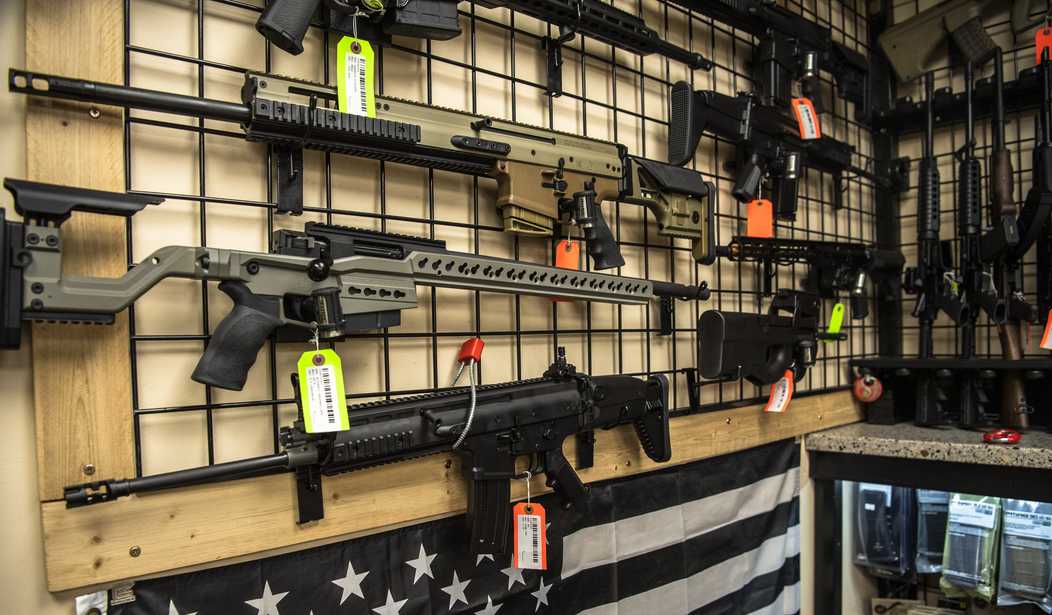After more than a year of legal wrangling, the multiple lawsuits challenging Ilinois' ban on commonly-owned semi-automatic firearms and "large capacity" magazines are now finally heading to trial. Opening arguments took place on Monday before U.S. District Judge Stephen McGlynn, with attorneys for the state contending that AR-15s and other semi-automatic firearms banned by the Protect Illinois Communities Act are "like" machine guns and therefore unprotected by the text of the Second Amendment.
That's the same argument used by a three-judge panel on the Seventh Circuit Court of Appeals, which stayed Judge McGlynn's previous injunction against enforcement of the gun and magazine bans. But the plaintiffs contend that the law places many arms in common use off-limits to citizens in clear violation of both the Second Amendment and Supreme Court jurisprudence.
Scope limited, historical tradition based on briefs, standing on briefs, what arms are to be considered. Barnett counsel lays out firearms, attachments to be considered, says while some may be used by police and military, they have dual use and Second Amendement comes in, quoting…
— Bishop On Air (@BishopOnAir) September 16, 2024
The attorneys for Illinois are also arguing that, unless the plaintiffs can show that the arms in question are commonly used for self-defense, the ban is justified. But the Supreme Court hasn't limited the Second Amendment solely to self-defense. While recognizing that individual self-defense may be the core purpose of the right to keep and bear arms, the Court has made it clear going back to Heller that the Second Amendment protects an individual right to possess and use a firearm for "traditionally lawful purposes", including (but not limited to) self-defense within the home.
During the afternoon session, plaintiffs called Marine veteran Jeffrey Eby to the stand. Eby, who served as an infantry weapons officer during his 28 years of active duty service, examined all of the firearms banned under PICA, and under direct questioning said he could only find two firearms on the state's banned list that would be suitable for military purposes. Ely also says he is "unaware of a single military in the world, let alone any branch of the U.S. military, that uses any semiautomatic-only rifles for general combat purposes"; directly refuting both the state's claims and the arguments raised by the Seventh Circuit Court of Appeals to stay McGlynn's earlier injunction.
McGlynn also heard from gun store owner Scott Pulaski, who informed the judge of the popularity of AR-style rifles among his customer base. Pualski told the judge that people purchase (or at least they did before the ban took effect) these firearms for a variety of reasons including self-defense, hunting, and competition. Since PICA took effect, however, those sales have disappeared, while many gun owners are still perplexed by the law's registration requirements. As the Chicago Tribune reports, it appears that many gun owners have either willfully chosen not to register their guns as PICA demands, or they're unaware of the mandates in the statute.
Through Dec. 31, 29,357 people had registered about 69,000 prohibited guns and over 42,000 accessories, according to Illinois State Police data. A little over 2.4 million Illinoisans have firearm owner’s identification cards, meaning only about 1.2% of FOID card holders registered guns or accessories subject to the ban, the statistics through 2023 show. However, the true degree of compliance with the law is not possible to determine, since residents with a valid FOID card may not own guns or accessories that are subject to the ban.
[Dan] Eldridge, the gun shop owner with Federal Firearms Licensees of Illinois, said the ban has led to business closures and confusion over issues including whether repaired guns outlawed under the ban can be transferred from gunsmiths to the firearm owners.
“This is a slow process. It’s much slower than I’d anticipated. I did not realize that over a year and half later we would just now be getting to the trial after all the pretrial maneuvering,” Eldridge said.
McGlynn has done his best to speed things along, especially after the Supreme Court turned away an emergency appeal of the Seventh Circuit's stay. Still, it could easily be another year (or more) before the case reaches SCOTUS on the merits. No matter how McGlynn rules in this week's trial, the losing side will appeal to the Seventh Circuit, and the appeals process all but guarantees the case will be kept away from the Supreme Court for many more months.
SCOTUS does have the opportunity to address bans on so-called assault weapons in the near future, however. Snope v. Brown, which challenges Maryland's ban on "assault weapons" and "large capacity" magazines, has been fully briefed and decided by the Fourth Circuit Court of Appeals and a cert petition seeking Supreme Court review of the decision upholding the ban should be heard in conference sometime next month. The state of Maryland has until October 23rd to file its response to the cert request, which means the justices could grant cert in November and calendar the case for oral argument next spring.









